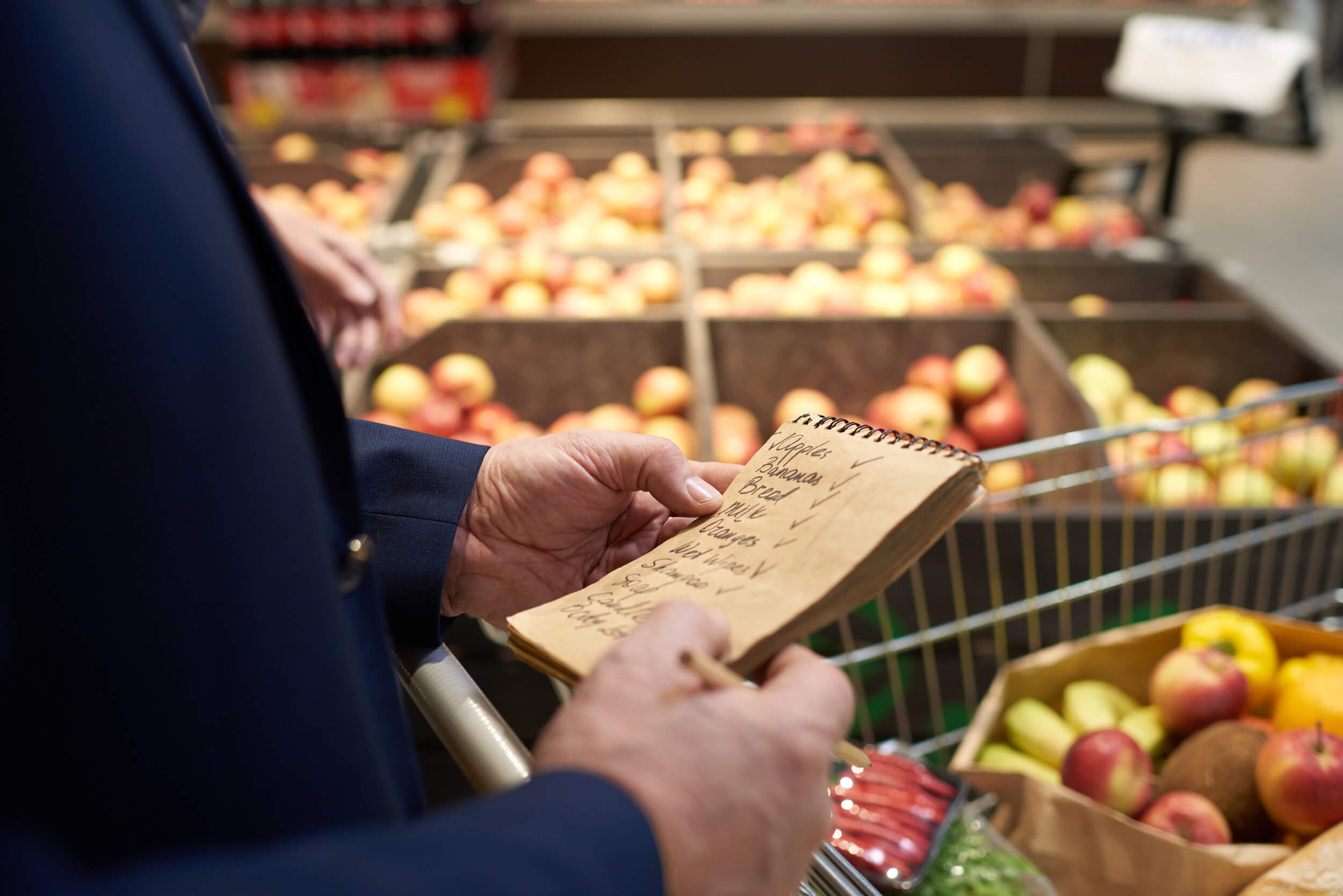Have you ever thought about how something as simple as buying local food could make a big difference? By choosing food from nearby farms, you’re doing more than just putting fresh, delicious produce on your table—you’re playing an active role in making the world a better place. Local food travels fewer miles, which means less pollution, less waste, and a smaller carbon footprint.
More and more people are turning to local food because it supports sustainable farming, strengthens local economies, and promotes healthier eating habits. When you buy from local farmers, you’re helping them continue their work, protect farmlands, and preserve the natural beauty of your region. These small choices add up, creating a positive ripple effect that touches everything from your community to the planet.
It’s amazing how one simple decision can lead to so many benefits for you and the world around you.
The Global Impact of Local Food
Buying local food makes a global impact in surprising ways. When you choose food grown nearby, it helps reduce the need for long-distance transportation, which leads to less fuel consumption and fewer harmful emissions. This small but important step contributes to environmental conservation and helps tackle climate-related issues.
On top of that, buying local keeps money in your community. Supporting local farmers means that your dollars help strengthen local businesses, create jobs, and keep small farms running. This kind of economic stability is essential, especially as global supply chains face challenges.
In a broader sense, choosing local food also promotes food security. It helps ensure that communities have access to fresh, healthy options, even when there are disruptions in larger food systems. Every choice to support local farming plays a part in creating a healthier, more sustainable future for both your community and the world.
Before we get into the specifics, let’s explore just how far-reaching the benefits of buying local food can be. Supporting local farmers is a decision that resonates beyond just your community—it touches global environmental, economic, and social issues. Now, let’s take a closer look at 12 ways your choice to buy local food makes a global impact.
1. You’ll Enjoy Tastier Results with Local Food
One of the best parts of buying local food is how much fresher and tastier it is. When food doesn’t have to travel far, it can be picked at the perfect time, which means it’s packed with flavor when it reaches your kitchen. Unlike produce that’s shipped from across the country or overseas, local food isn’t harvested too early to survive the long journey. This means you get to enjoy fruits and vegetables at their peak ripeness, offering the best taste possible.
Local food often spends less time between farm and table, so it maintains its natural sweetness and texture. You’ll notice the difference when you bite into a locally grown tomato, peach, or leafy green. These small details matter because fresh food means better meals.
Buying local food makes a global impact, but it also makes a huge difference in the quality of what you eat every day. Fresh, local produce simply tastes better.
2. The Nutrients Are Preserved Better
The longer food takes to get from farm to table, the more nutrients it can lose. Studies show that fruits and vegetables start to lose their vitamins and minerals soon after they are picked. This means that the fresher the food, the more nutrients you get. Since local food has shorter travel times, it holds onto more of its natural goodness.
Buying local food makes a global impact, but it also helps you get the most from your meals. When you choose local, you’re not only supporting farmers but also giving your body more of the vitamins and minerals it needs.
3. You Can Avoid GMOs and Other Questionable Practices
Purchasing from local farmers often means getting food that is free from genetically modified organisms (GMOs) and chemicals. Many local farms use organic methods, producing food with fewer additives and a more natural approach. This gives you peace of mind, knowing exactly how your food is grown and where it comes from.
Opting for local food eliminates the uncertainty linked with mass-produced goods. Supporting small farms promotes sustainable and trustworthy farming practices, ensuring your food remains as natural as possible. It’s a healthier choice for both you and the environment.
4. You’ll Support Local Farmers and Families
Supporting local farmers keeps your community strong. Every time you choose local food, you’re helping farming families continue their work, making it possible for them to grow more and sustain their livelihoods. These small farms often rely on local buyers to stay afloat, and your choice helps them improve their farms and provide for their families.
This decision also benefits the community as a whole. Local farms create jobs, keep money within the region, and maintain a vital part of the local economy. Choosing local food strengthens the connection between farmers and their communities, creating lasting positive effects.
5. Preserves Farmland and Rural Areas
When you support local farms, you help preserve valuable farmland from being lost to urban development. With urban sprawl expanding rapidly, rural areas often face pressure to sell off farmland for housing or industrial projects. Choosing local food gives farmers the means to keep their land productive and resist selling it.
As more people turn to local food, farms can thrive, protecting open spaces that are essential for agriculture. Your choices play a part in keeping these rural landscapes intact, ensuring that future generations will continue to benefit from fresh food and green spaces.

6. You Help the Environment and Wildlife
Small-scale local farming often uses methods that are gentler on the environment. Without the need for large-scale machinery and long-distance transportation, local farms produce less pollution and help maintain the quality of the land. These farms are more likely to use sustainable practices that preserve soil health and water resources.
Supporting local farms also benefits wildlife. By keeping more land in its natural state, wildlife habitats are preserved. This helps minimize the disruption of local ecosystems, allowing animals to thrive alongside farmland, and contributing to a balanced environment.
7. You’ll Enjoy Seasonal Variety
Local food offers an exciting variety that changes with the seasons. Each season brings new produce to your table, giving you the chance to try fruits and vegetables at their freshest. In summer, you might enjoy sweet berries and tomatoes, while fall could bring apples and pumpkins.
Supermarkets often offer the same produce year-round, but local farms let you rediscover the joy of eating what’s in season. This not only supports better nutrition but also connects you more closely to the natural growing cycles. Seasonal eating adds variety to your diet and keeps meals exciting.
8. Reduced Waste and a Smaller Carbon Footprint
Food that doesn’t travel far results in less waste and a lower carbon footprint. Since local food is harvested closer to home, it doesn’t face the same risks of damage during transportation. Less spoilage means less food is wasted before it even reaches your kitchen.
Additionally, shorter distances mean less fuel is used in the delivery process, cutting down on the emissions tied to long-haul transport. Choosing local food reduces the need for excess packaging as well, further minimizing waste and environmental harm. It’s a simple, effective way to lessen your impact on the planet.
9. Boosts the Local Economy
Purchasing from local farmers keeps money flowing within your community. Instead of sending profits to large corporations, your dollars stay in the region, helping to support local jobs and businesses.
Local food purchases create a cycle of economic growth. Farmers can invest back into their operations, hire more workers, and improve their farming practices. This contributes to the overall well-being of the local economy, fostering stronger connections between businesses and consumers. The success of local farms often leads to more vibrant communities, benefiting everyone involved.
10. Farmers’ Markets Promote Social Interaction
Farmers’ markets offer more than just fresh produce—they create a place for social interaction and community building. Meeting your local farmers, chatting with neighbors, and learning about where your food comes from can foster a deeper connection to your community.
These markets provide opportunities to share gardening tips, recipes, and knowledge with others. They are a space where people can gather and exchange ideas, creating a sense of belonging. Supporting farmers’ markets doesn’t just strengthen the local food system—it helps create stronger, more connected communities.
11. Teaches Agriculture to Future Generations
Buying local food is an excellent way to introduce children to agriculture and healthy eating habits. Visiting farms or farmers’ markets can teach kids where their food comes from, and the importance of sustainable farming practices.
This hands-on experience offers valuable lessons in nutrition, responsibility, and respect for the environment. By encouraging the next generation to understand and appreciate local agriculture, we help create a future where healthy, sustainable choices are second nature. These early lessons can have lasting impacts, shaping future generations to support local farming and healthy living.
12. Investing in the Future
Supporting local farms today helps ensure they will be around for the future. When communities invest in local food, they give farms the resources needed to keep operating and growing. This choice helps protect farmlands, create food security, and promote sustainable farming practices that can be passed on to future generations.
Buying local is more than just a purchase—it’s a long-term commitment to a healthier, more sustainable world. Each small choice contributes to a bigger impact, setting an example of responsible consumerism that benefits not only today’s generation but those to come.
The Bigger Picture
Choosing local food brings countless benefits. From enjoying fresher, healthier meals to supporting local farmers, the positive effects stretch far and wide. Not only does it strengthen the local economy, but it also helps protect the environment, reduce waste, and preserve farmlands. Every small decision to buy local has a ripple effect, contributing to a more sustainable and connected world.
It’s clear that buying local food makes a global impact. These small choices contribute to a healthier planet, a stronger community, and a better future for everyone. Supporting local farms is a step toward lasting positive change.














